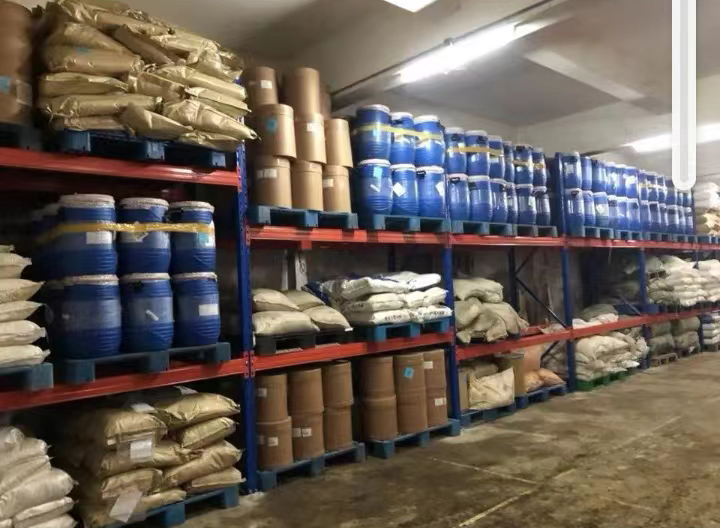How to Properly Handle Waste in Shandong Pharmaceutical Intermediate?
Shandong is one of the important pharmaceutical production bases in the country, and the production production is relatively concentrated. The treatment of Shandong Pharmaceutical Intermediate waste is essential for protecting the environment, human health, and sustainable enterprise. This article will discuss how to properly handle waste in the production of Shandong pharmaceutical intermediates.
First, reasonable classification and storage waste
Reasonable classification and storage waste are the first step in waste treatment. In the production of Shandong Pharmaceutical Intermediates, the main wastes include organic waste, wastewater, waste gas and solid waste. Different types of waste should be categorized and strictly abide by relevant regulations to ensure that the waste is not mixed or polluted.
Organic waste should be collected and dealt with during the production process. Organic waste can be treated by biological transformation, incineration or composting to reduce the impact on the environment. In the storage procedure, you should avoid contact with other harmful substances, and regularly clean up, disinfected and maintained.
The treatment of wastewater is also very important. The treatment method of wastewater in the production of Shandong Pharmaceuticals can adopt methods such as physical chemistry treatment, biological treatment and regeneration treatment. Different treatment methods are suitable for different wastewater characteristics, but they need to strictly abide by environmental protection regulations and local standards.
The treatment of exhaust gas is also an important part of protecting the environment and employee health. In the production of Shandong Pharmaceutical Intermediates, exhaust gas usually contains organic solvents, toxic gases and dust. For exhaust gas treatment can adopt methods such as absorption, adsorption, catalytic combustion, and purification to reduce the harm of waste gas to the environment and human body.
Solid waste also needs to be dealt with correctly. The solid waste produced during the production process of Shandong Pharmaceuticals mainly includes waste residue, waste, waste liquid, etc. These wastes can be treated by separation, classification, reuse and safety landfills. Enterprises should formulate corresponding waste management plans and regularly monitor and evaluate to ensure that the waste is properly handled.
Second, increase the use rate of waste resourceization
In Shandong pharmaceutical intermediate production, the resource utilization of waste can help reduce environmental pollution and achieve sustainable development. The use of waste resources mainly includes recycling of valuable substances in wastewater, biological conversion of organic waste, and reuse of solid waste.
Waste water may contain organic matter, metal ions and other valuable substances. Through appropriate treatment, these valuable substances can be recycled and utilized. For example, technologies such as adsorption, ion exchange, and membrane separation can be used to recover valuable substances from wastewater, such as organic solvents, heavy metals and inorganic salts.
Organic waste can be transformed into useful products through biological conversion. For example, using microorganisms for fermentation can convert organic waste into organic fertilizers or biological energy. This method not only reduces the pollution of organic waste to the environment, but also increases the economic benefits of the enterprise.
The reuse of solid waste is also an important way for resource utilization. In the production of Shandong pharmaceutical intermediates, solid waste can be treated by recycling, processing, and re -use. For example, organic waste residues can generate biogas through anaerobic fermentation, and waste can be reused by melting regeneration.
Third, reasonable selection of waste treatment technology
It is very important to choose appropriate waste treatment technology in the production of Shandong Pharmaceutical Intermediate. Reasonable waste treatment technology can minimize environmental pollution and waste of resources.
When selecting wastewater treatment technology, the appropriate treatment method should be selected according to the characteristics of the wastewater. Physical chemical treatment methods are suitable for removal of organic matter, metal salt and suspended objects in wastewater. The biological treatment method is suitable for the degradation of organic matter in wastewater. The recycling treatment method is applicable to the recycling and utilization of valuable substances in wastewater.
When selecting exhaust gas treatment technology, the appropriate treatment method should be selected according to the composition and concentration of the exhaust gas. Absorption and adsorption are suitable for gas adsorption and separation. Catalytic combustion is suitable for combustion and decomposition of organic solvents. Purification is suitable for removal of dust and toxic gases.
When selecting solid waste treatment technology, the appropriate treatment method should be selected according to the nature of the waste. If organic waste residue can produce biogas through anaerobic fermentation, waste can be used by melting regeneration.
In short, in Shandong Pharmaceutical Intermediate production, properly handling waste is the common responsibility for protecting the environment, human health, and sustainable development of enterprises. Through reasonable classification and storage of waste, increasing the utilization rate of waste resources, choosing appropriate waste treatment technology, and strengthening waste management and monitoring, it can effectively reduce environmental pollution and achieve sustainable development.





